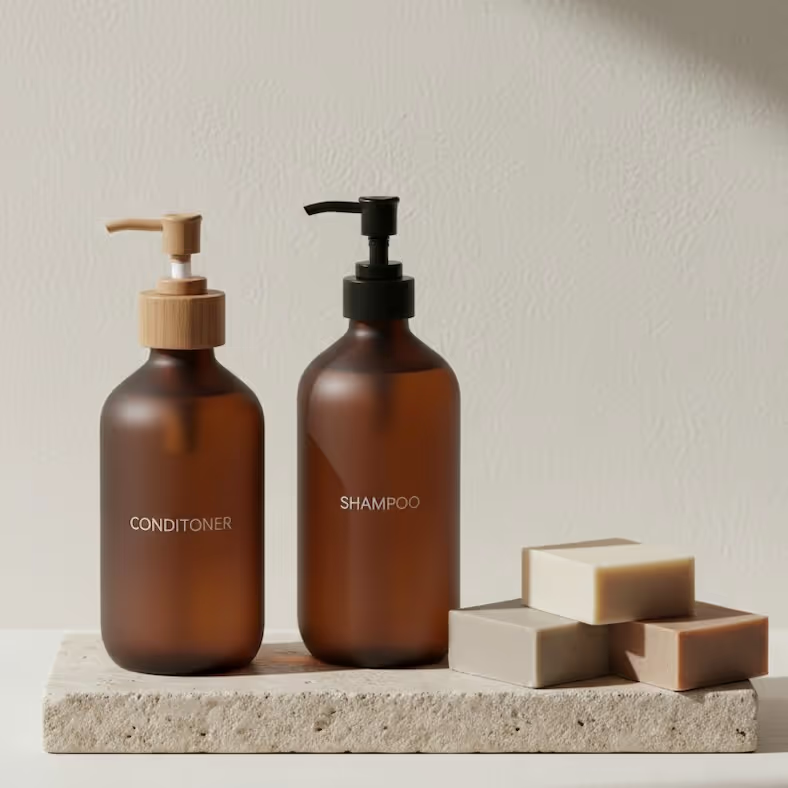Explore the benefits of natural conditioner, including healthy ingredients, sustainability, and real user experiences. Make the switch today.
Tchiki Davis, M.A., Ph.D.
*This post may contain affiliate links. If you click and make a purchase, we may earn a small commission at no extra cost to you.

Switching to natural conditioner can transform your hair care routine while keeping your scalp and strands safe from harsh chemicals. These eco-friendly conditioners use plant-based ingredients to hydrate, detangle, and protect your hair. Whether you’re aiming for healthier curls, reducing exposure to toxins, or embracing a more sustainable lifestyle, natural conditioners offer a gentle yet effective solution.
Natural conditioner is a hair care product formulated with plant-based and biodegradable ingredients, designed to moisturize and detangle hair without the use of harsh chemicals. Unlike traditional conditioners that may contain synthetic fragrances, parabens, and sulfates, natural conditioners prioritize the use of non-toxic substances, making them gentler on both the hair and the environment.
Common ingredients in natural conditioners include:
By choosing natural conditioners, consumers can reduce their exposure to potentially harmful chemicals and contribute to a more sustainable lifestyle.
The use of natural substances to condition hair dates back to ancient civilizations. In ancient Egypt, castor oil was a staple in hair care routines. Renowned for its moisturizing properties, this thick oil was used to condition and strengthen hair. Egyptians also mixed it with other natural ingredients, such as honey and herbs, to create hair masks that promoted growth and added shine.
Similarly, ancient Greeks and Romans used olive oil to soften and condition their hair. Being that hair cleansing products were unavailable during their time, they applied olive oil directly to their hair to maintain its health and appearance.
In more recent history, the first hair conditioner resembling modern products was developed in 1900 by the perfume company Ed. Pinaud. This oily liquid softened men's hair, giving it a glossy appearance and making it easier to style without the residue left over that Macassar Oil had become known for.
Today, natural conditioners have evolved to include a wide range of plant-based ingredients, offering consumers effective and eco-friendly options for hair care.

One of the primary reasons individuals choose natural conditioners is the healthier composition of their ingredients. These conditioners often contain plant-based oils and extracts that nourish and strengthen hair without the use of synthetic chemicals.
For example, SheaMoisture's Manuka Honey & Yogurt Hydrate + Repair Conditioner is formulated with natural ingredients like manuka honey and yogurt extract, which help to hydrate and repair dry, brittle hair. This conditioner has been praised for its ability to restore moisture and improve hair texture.
Similarly, Aveda's Cherry Almond Conditioner is made with 98% naturally-derived ingredients, including cherry blossom extract and almond oil. This conditioner provides deep conditioning without greasiness and is free from silicones, parabens, mineral oils, and phthalates.
By opting for natural conditioners, consumers can enjoy the benefits of nourishing ingredients while avoiding potentially harmful chemicals.
Natural conditioners often emphasize sustainability in their production and packaging. Many brands use biodegradable ingredients and recyclable or compostable packaging to minimize environmental impact.
For example, Redken's Nature + Science conditioners are made with 99% naturally-derived ingredients and are free from sulfates, parabens, and silicones. The brand also focuses on sustainable sourcing and eco-friendly packaging to reduce its environmental footprint.
Furthermore, some natural conditioner brands are certified by organizations like the Environmental Working Group (EWG) and Leaping Bunny, ensuring that their products meet high standards for safety and environmental responsibility.
By choosing sustainable conditioner options, consumers can contribute to reducing plastic pollution and promoting a healthier planet.

Many individuals have shared positive experiences with natural conditioners, highlighting their effectiveness and gentleness on the hair.
One Reddit user mentioned, "I've been using the JĀSÖN Thicken & Restore Biotin and Hyaluronic Acid conditioner and love it so much. My hair is type 1B and has some heat damage. This conditioner makes it so soft and I’ve noticed my hair looking healthier and fuller."
Another user shared, "Sta Sof Fro Extra Dry Hair and Scalp Spray on Amazon. The consistency is like water but it is incredibly softening and moisturizing!"
These testimonials suggest that natural conditioners can be both effective and gentle, making them a suitable choice for individuals seeking to reduce their exposure to harsh chemicals.

For those interested in a more hands-on approach, making your own natural conditioner can be a cost-effective and customizable option.
A simple DIY recipe includes:
Mix all the ingredients together and apply to damp hair after shampooing. Leave on for 5-10 minutes, then rinse thoroughly. This homemade conditioner is free from synthetic fragrances and dyes, offering a natural alternative for those seeking to minimize their exposure to chemicals.

Natural conditioner offers a healthier and more sustainable alternative to conventional hair care products. By choosing conditioners made with plant-based ingredients and eco-friendly packaging, consumers can reduce their exposure to harmful chemicals and contribute to environmental conservation.
Whether purchasing from reputable brands or creating your own conditioner at home, making the switch to natural hair care solutions can be a positive step toward a cleaner, greener lifestyle.
* AI Disclosure: This article was developed with the assistance of AI language models, which aided in research, drafting, and/or editing. We strive for accuracy, but AI-generated content can occasionally contain errors. We recommend you double-check and verify information before making decisions based on this content.